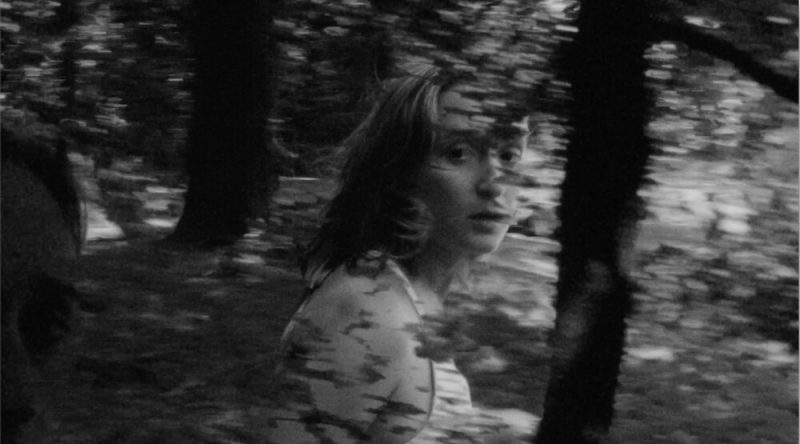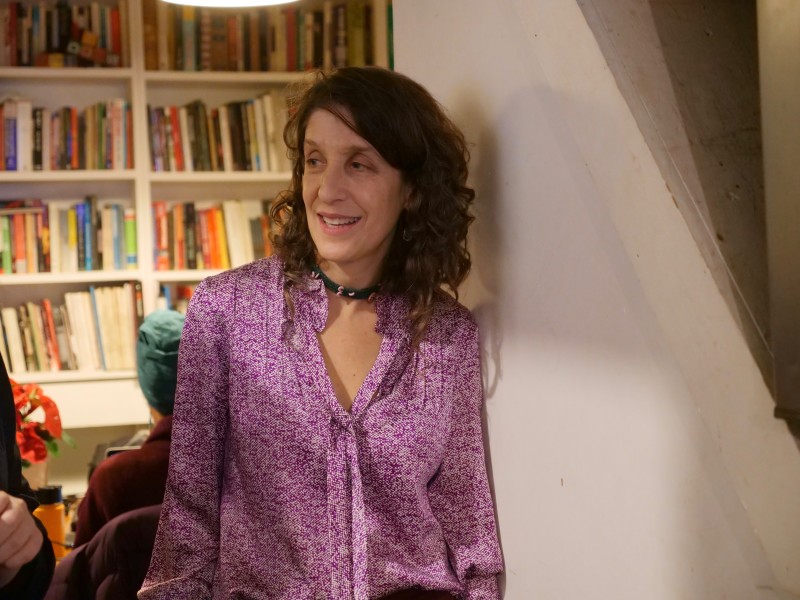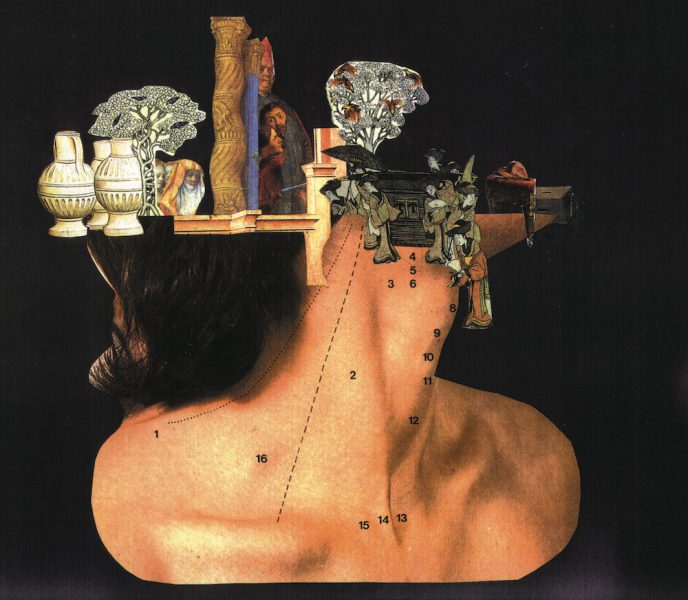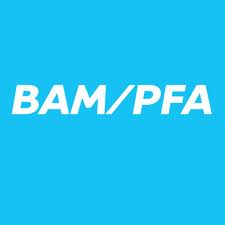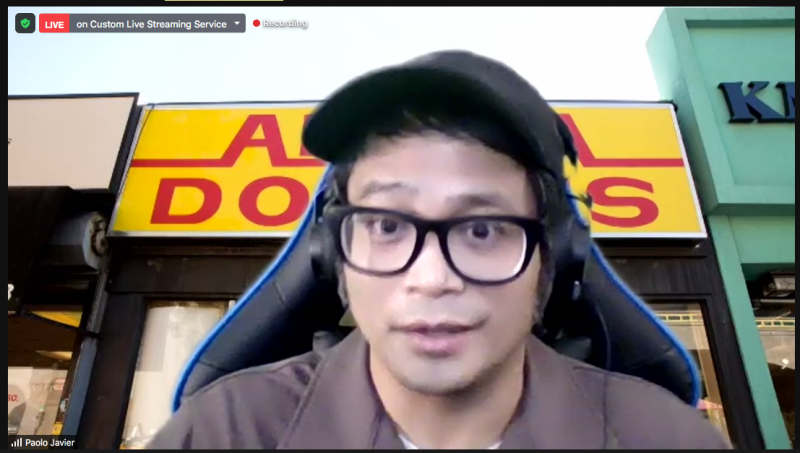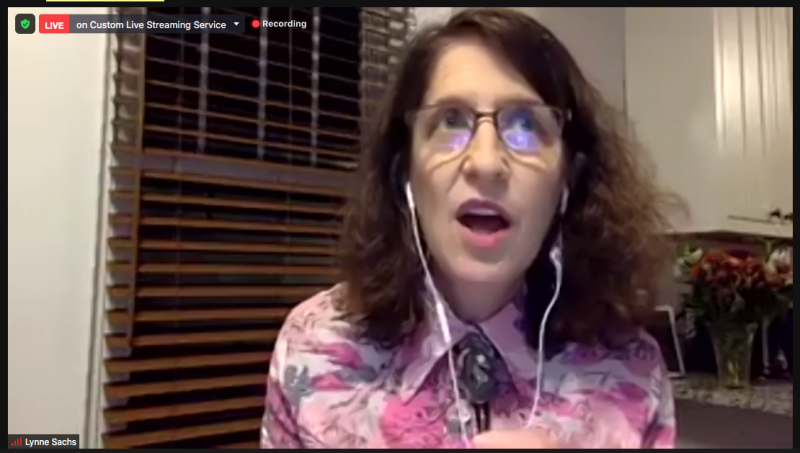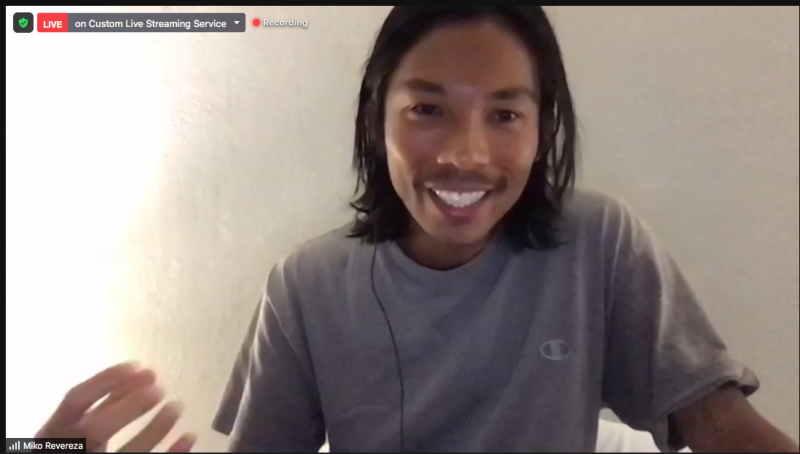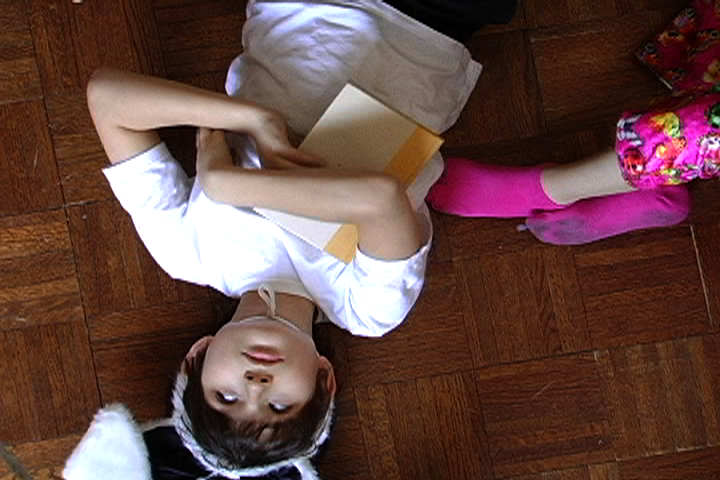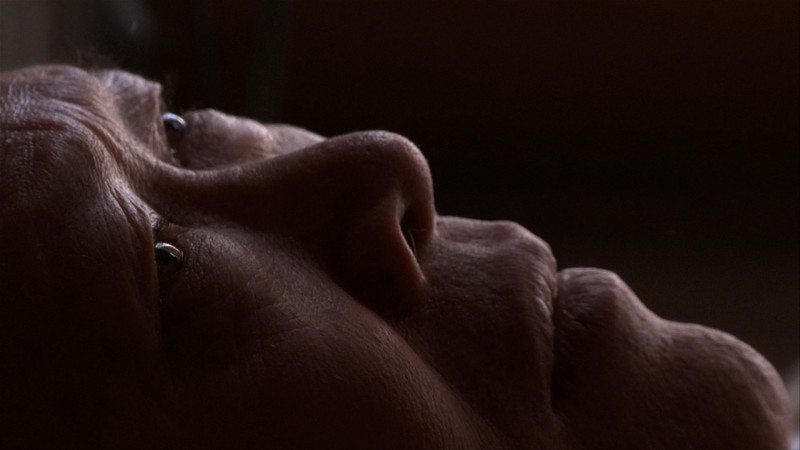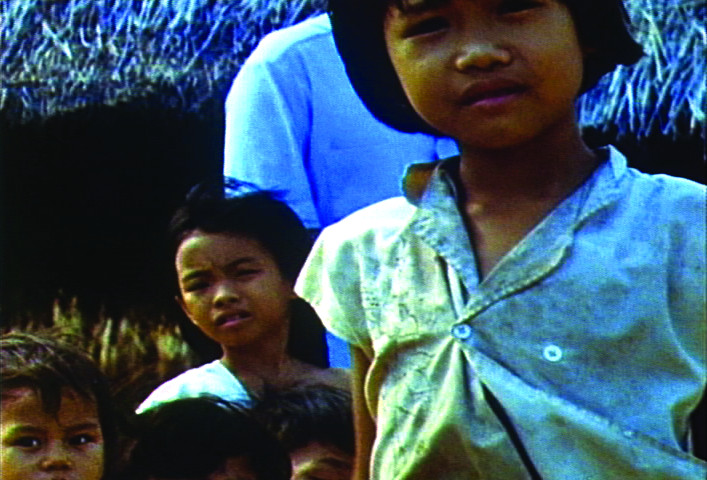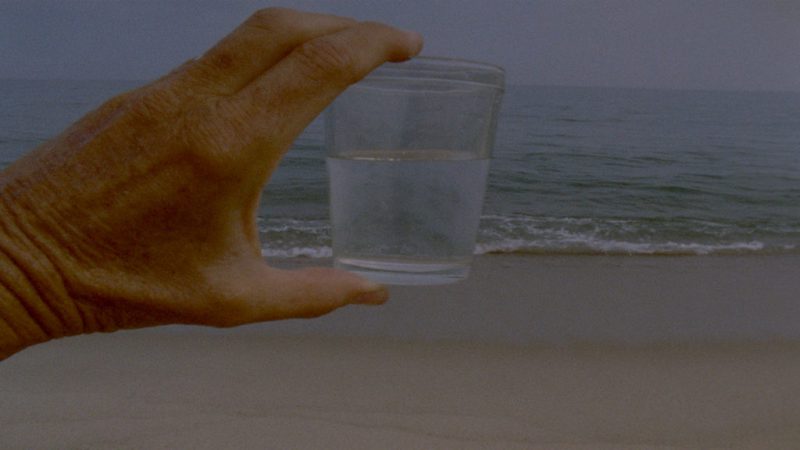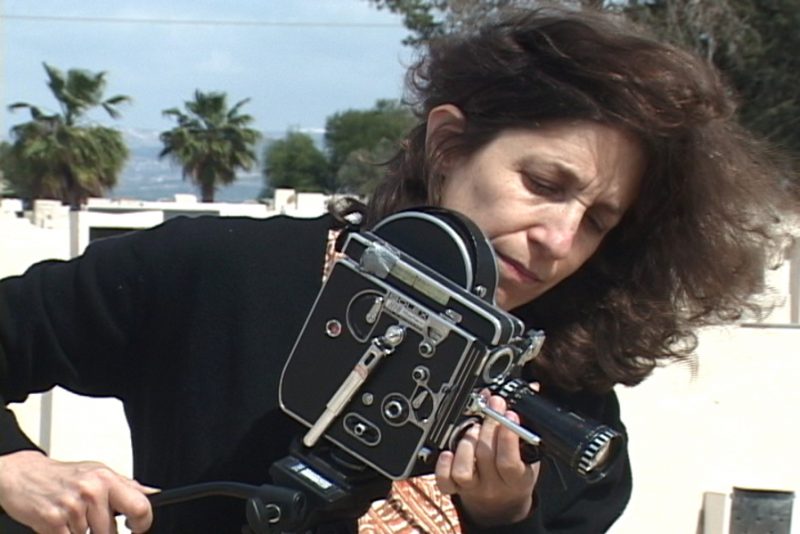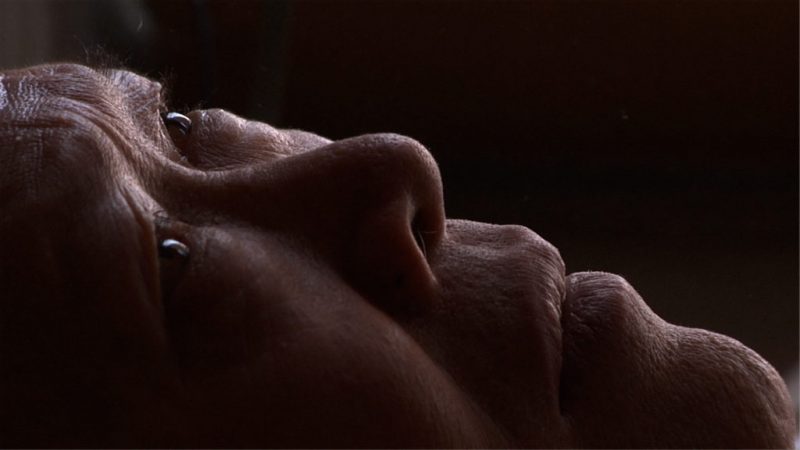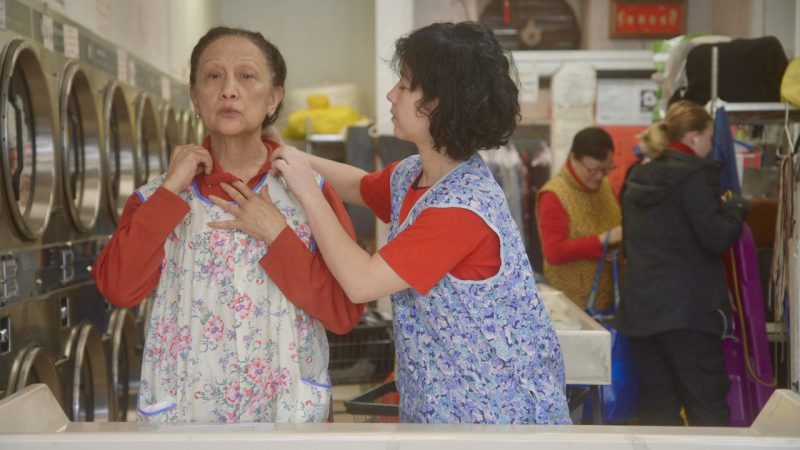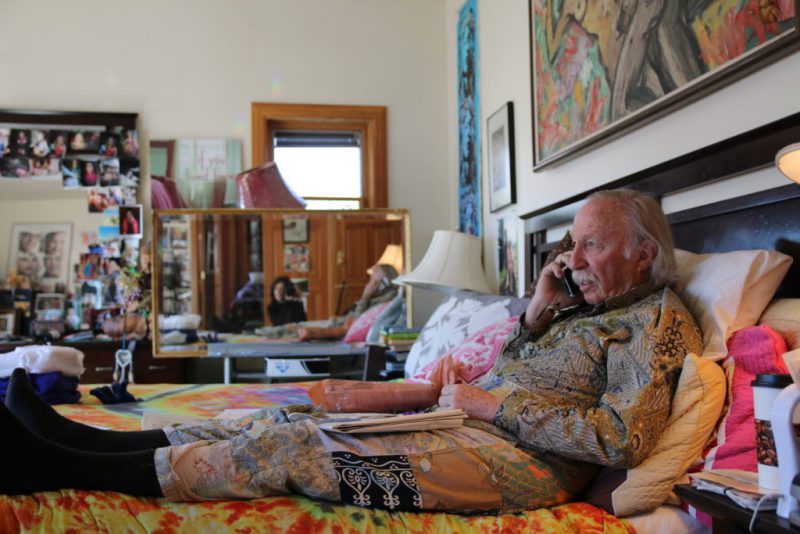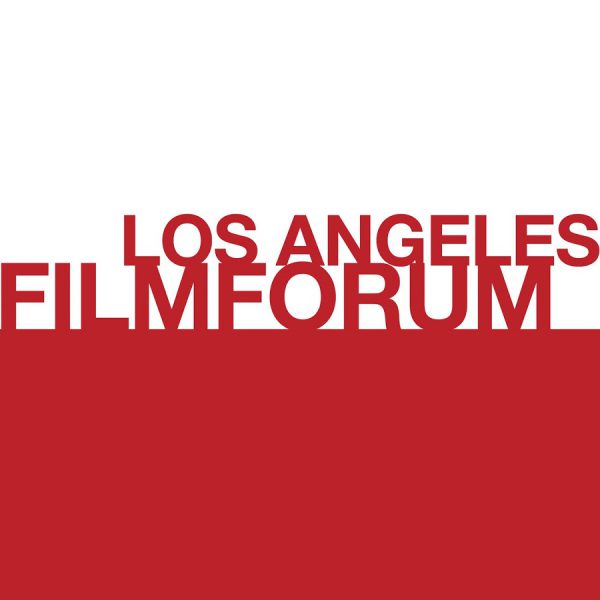
Lynne Sachs & Stephen Vitiello: Sound Engagements – Program 1: Four Films
https://www.lafilmforum.org/schedule/winter-2021/lynne-sachs-four-films-with-stephen-vitiello/
Los Angeles Filmforum presents
Lynne Sachs & Stephen Vitiello: Sound Engagements
Part 1: Four Films
Films Screening February 12-22, 2021
Live Q&A with Lynne Sachs on Friday, February 19, 7:00 pm PST (10:00 pm EST) by Zoom
Conversation with Lynne Sachs and Stephen Vitiello moderated by musician and music critic Sasha Frere-Jones on Sunday February 21, 5:00 pm PST (8:00 pm EST) by Zoom
Online via Los Angeles Filmforum
Filmforum is delighted to kick off 2021 by welcoming back our friend Lynne Sachs with her new film and several past works, all of which include original music by sound artist Stephen Vitiello.
“In collaborating on the soundtracks for my films, Stephen Vitiello somehow recognizes the interior sounds of objects and releases them for us to hear. Together his music and his sound designs push audiences toward a new way of experiencing cinema.” – Lynne Sachs
In these two programs, Los Angeles Filmforum explores the seven-year collaborative relationship between filmmaker Lynne Sachs and sound artist Stephen Vitiello.
Admission will include receiving links to both Zoom conversations!
Four films are covered by this admission, which is on a sliding scale, and which takes you to a screening room set up by Canyon Cinema. You also get a free link to the live Q&A with Lynne on Friday February 19 and the tripartite conversation on Sunday Feb 21.!
Ticketing for Four Films: Sliding Scale, $0 for members, $5 for students, $8, $12, $20
at https://lynnesachs4films.bpt.me
We hope that, if your means allow, you might go for $20, as you will be getting to see 4 wonderful films and attend two discussions!
Film About a Father Who is distributed by Cinema Guild, and has its own virtual cinema admission charge, listed on its own Filmforum webpage at https://www.lafilmforum.org/schedule/winter-2021/film-about-a-father-who/
Special Thanks to Brett Kashmere, Canyon Cinema, Tom Sveen, Cinema Guild.
Films by Lynne Sachs with music and sound design by Stephen Vitiello
2013 – 2020
Biographies:
Lynne Sachs is a filmmaker and a poet born in Memphis, Tennessee but living in Brooklyn, New York. Her work explores the intricate relationship between personal observations and broader historical experiences by weaving together text, collage, painting, politics and layered sound design. Strongly committed to a dialogue between cinematic theory and practice, she searches for a rigorous play between image and sound, pushing the visual and aural textures in her work with every new project. Her work ranges from the very personal, as in her early experiments that are reminiscent of Bruce Connor’s found footage films and Chris Marker’s essay films, to documentary, as in her film on the Catonsville Nine’s antiwar-activism in Investigation of a Flame. Lynne discovered her love of filmmaking while living in San Francisco where she worked closely with film artists Craig Baldwin, Bruce Conner, Barbara Hammer, George Kuchar, and Trinh T. Min-ha. Between 1994 and 2006, she produced five essay films that took her to Vietnam, Bosnia, Israel, Italy and Germany — sites affected by international war — where she looked at the space between a community’s collective memory and her own subjective perceptions.
Sachs has made 37 films, which have screened at the New York Film Festival, Sundance, Oberhausen, Viennale, BAMCinemaFest, Vancouver Film Festival, DocLisboa and many others nationally and internationally. They have also been exhibited at the Museum of Modern Art, the Whitney Museum of American Art, Walker Art Center, Wexner Center for the Arts and other venues. The Buenos Aires International Festival of Independent Cinema, Festival International Nuevo Cine in Havana, China Women’s Film Festival and Sheffield Documentary Festival have all presented retrospectives of Lynne’s films. She received a 2014 Guggenheim Fellowship in the Arts. In 2019, Tender Buttons Press published Lynne’s first collection of poetry, Year by Year Poems. Lynne lives in Brooklyn with filmmaker Mark Street. Together, they have two daughters, Maya and Noa Street-Sachs. www.lynnesachs.com
Stephen Vitiello is an electronic musician and sound artist who transforms incidental atmospheric noises into mesmerizing soundscapes that alter our perception of the surrounding environment. He has composed music for independent films, experimental video projects and art installations, collaborating with such artists as Nam June Paik, Tony Oursler and Dara Birnbaum. Solo and group exhibitions include MASS MoCA, The High Line, NYC, and the Museum of Modern Art. https://www.stephenvitiello.com/
Solo exhibitions include All Those Vanished Engines, MASS MoCA, North Adams, MA (2011-(ongoing)); A Bell For Every Minute, The High Line, NYC (2010-2011); More Songs About Buildings and Bells, Museum 52, New York (2011); and Stephen Vitiello, The Project, New York (2006). He has participated in such group exhibitions as Soundings: A Contemporary Score, Museum of Modern Art, NY (2013); Sound Objects: Leah Beeferman and Stephen Vitiello, Fridman Gallery, New York (2014); September 11, PS 1/MoMA, LIC, NY (2011-2012); the 15th Biennale of Sydney, Australia (2006); Yanomami: Spirit of the Forest at the Cartier Foundation, Paris; and the 2002 Biennial Exhibition, Whitney Museum of American Art, New York (2002). Vitiello has performed nationally and internationally, at locations such as the Tate Modern, London; the San Francisco Electronic Music Festival; The Kitchen, New York; and the Cartier Foundation, Paris. In 2011, ABC-TV, Australia produced the documentary Stephen Vitiello: Listening With Intent. Awards include Creative Capital (2006) and a Guggenheim Fellowship (2011-2012). Vitiello is a professor of Kinetic Imaging at Virginia Commonwealth University. He lives and works in Richmond, Virginia.
Sasha Frere-Jones is a writer and musician from New York.
Los Angeles Filmforum screenings are supported by the Los Angeles County Board of Supervisors through the Los Angeles County Department of Arts & Culture, the Department of Cultural Affairs, City of Los Angeles, the National Endowment for the Arts, the Mike Kelley Foundation for the Arts, the Wilhelm Family Foundation, and the Academy of Motion Picture Arts & Sciences. We also depend on our members, ticket buyers, and individual donors.
The Washing Society
Directed by Lynne Sachs and Lizzie Olesker
2018, color, sound, 44 min.
When you drop off a bag of dirty laundry, who’s doing the washing and folding? The Washing Society brings us into New York City laundromats and the experiences of the people who work there by observing these disappearing neighborhood spaces and the continual, intimate labor that happens there. The juxtaposition of narrative and documentary elements in THE WASHING SOCIETY creates a dream-like, yet hyper-real portrayal of a day in the life of a laundry worker, both past and present.
“The legacy of domestic work, the issues surrounding power, and the exchange of money for services are all potent themes which rise to the surface and bubble over in dramatic, thrilling escalations of the everyday.” – Brooklyn Rail
“Spotlights the often-invisible workers who fold the clothes, maintain the machines and know your secrets.” – In These Times
Featuring: Jasmine Holloway, Veraalba Santa, and Ching Valdes-Aran
Cinematography: Sean Hanley, Editiing: Amanda Katz
Trailer: http://www.lynnesachs.com/2017/08/23/the-washing-society/
“Drift and Bough”
2014, Super 8mm on Digital, B&W, sound, 6 min.
Sachs spends a winter morning in Central Park shooting film in the snow. Holding her Super 8mm camera, she takes note of graphic explosions of dark and light and an occasional skyscraper. The stark black lines of the trees against the whiteness create the sensation of a painterʼs chiaroscuro. Woven into this cinematic landscape, we hear sound artist Stephen Vitielloʼs delicate yet soaring musical track which seems to wind its way across the frozen ground, up the tree trunks to the sky.
Tip of My Tongue
2017, color, sound, 80 min.
“To mark her 50th birthday, filmmaker Lynne Sachs gathers a group of her contemporaries—all New Yorkers but originally hailing from all corners of the globe—for a weekend of recollection and reflection on the most life-altering personal, local, and international events of the past half-century, creating what Sachs calls ‘a collective distillation of our times.’ Interspersed with poetry and flashes of archival footage, this poignant reverie reveals how far beyond our control life is, and how far we can go despite this.” — Kathy Brew, Museum of Modern Art
“A mesmerizing ride through time, a dreamscape full of reflection, filled with inspired use of archival footage, poetry, beautiful cinematography and music. Raises the question of how deeply events affect us, while granting us enough room to crash into our own thoughts, or float on by, rejoicing in the company of our newfound friends.” — Screen Slate, Sonya Redi
“A beautiful, poetic collage of memory, history, poetry, and lived experience, in all its joys, sorrows, fears, hopes, triumphs, and tragedies … rendered in exquisite visual terms, creating an artful collective chronicle of history.” Christopher Bourne, Screen Anarchy
Trailer: http://www.lynnesachs.com/2017/04/25/tip-of-my-tongue/
Featuring: Dominga Alvarado, Mark Cohen, Sholeh Dalai, Andrea Kannapell, Sarah Markgraf, Shira Nayman, George Sanchez, Adam Schartoff, Erik Schurink, Accra Shepp, Sue Simon, Jim Supanick
Cinematography: Sean Hanley
Editing: Amanda Katz
Your Day is My Night
2013, HD video and live performance, color, sound, 64 min.
Immigrant residents of a “shift-bed” apartment in the heart of New York City’s Chinatown share their stories of personal and political upheaval. As the bed transforms into a stage, the film reveals the collective history of the Chinese in the United States through conversations, autobiographical monologues, and theatrical movement pieces. Shot in the kitchens, bedrooms, wedding halls, cafés, and mahjong parlors of Chinatown, this provocative hybrid documentary addresses issues of privacy, intimacy, and urban life.
“A strikingly handsome, meditative work: a mixture of reportage, dreams, memories and playacting, which immerses you in an entire world that you might unknowingly pass on the corner of Hester Street, unable to guess what’s behind the fifth-floor windows.” -The Nation
In Chinese, English & Spanish with English Subtitles.
Trailer: https://www.youtube.com/watch?v=0Pks0_IRHek
Featuring: Yi Chun Cao, Linda Y.H. Chan, Chung Qing Che, Ellen Ho, Yun Xiu Huang, Sheut Hing Lee, Kam Yin Tsui, & Veraalba Santa.
Camera by Sean Hanley and Ethan Mass
Winner, Best Feature Documentary, San Diego Asian Film Festival, 2013 * Winner, Best Feature Film, Workers Unite! Film Festival, 2013 * Winner, Best Experimental Film, Traverse City Film Festival, 2013



